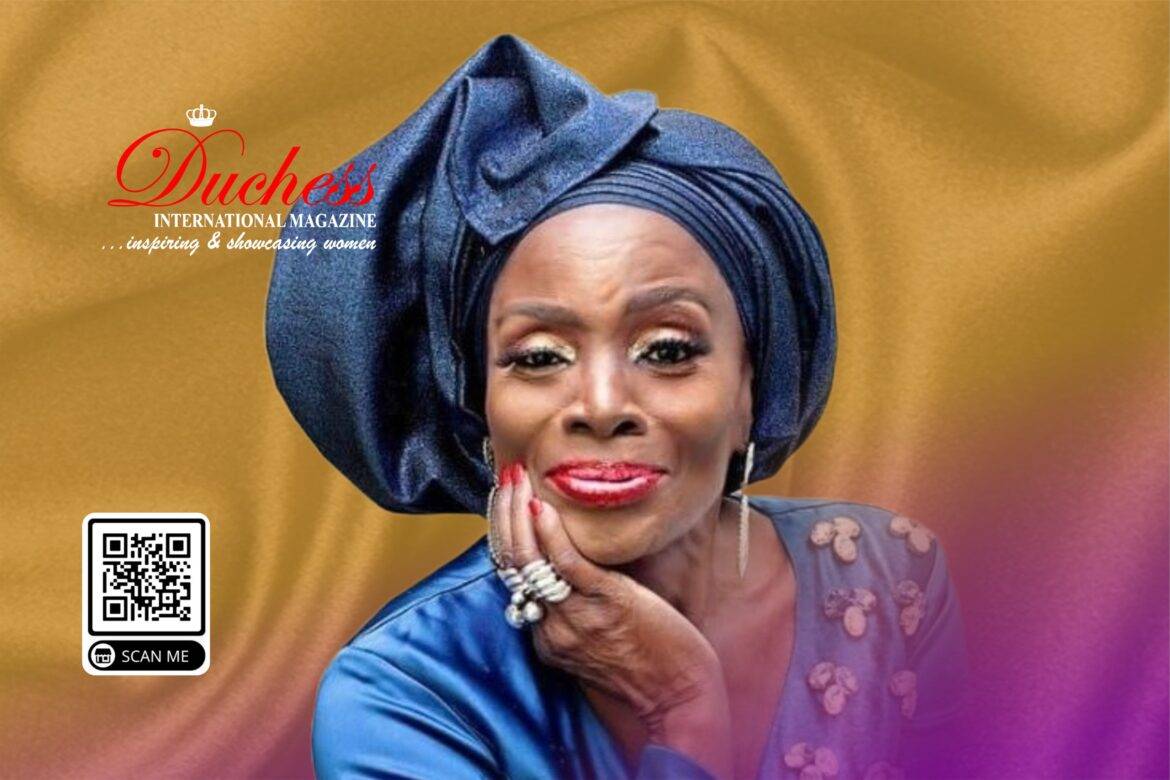In the vibrant tapestry of Nigerian cinema, theater, and media, few names resonate with as much reverence and respect as Taiwo Ajai-Lycett. Born on February 3, 1941, in Lagos, Nigeria, she stands as a testament to resilience, talent, and a fierce commitment to the arts. Her life story is not just one of success but of overcoming adversity, breaking barriers, and setting a standard for excellence in performance arts across Africa and beyond.
Taiwo Ajai-Lycett began life as the first of twin girls in colonial Nigeria, growing up under the Awori heritage in Lagos. Her educational journey took her from Mt Carmel Convent School to Methodist Girls’ High School in Lagos. Seeking further education, she ventured to London, where she not only studied business and administration but also delved into the world of cosmetology at the Christine Shaw School of Beauty Science. This blend of education laid a strong foundation for her multifaceted career.
London, in the 1960s, was where Taiwo’s acting career was kindled. She made her stage debut in Wole Soyinka’s “The Lion and the Jewel” at the Royal Court Theatre. Her time in the UK was not just about acting; she worked various jobs, from being a waitress to roles in advertising, all while honing her skills in theater and cosmetology. Her performance in “Murderous Angels” at the Dublin Theatre Festival in 1971 marked her international recognition as an actress.
Upon returning to Nigeria in 1971, Taiwo Ajai-Lycett’s career flourished. She became a familiar face on both stage and screen, featuring in numerous Nigerian productions. Her role in the soap opera “Tinsel” and the film “Oloibiri” are among her most notable, showcasing her ability to portray complex characters with depth and authenticity. “Oloibiri” in particular, an action thriller, highlighted her capability to engage with socio-political narratives, telling the story of oil exploitation in Nigeria.
Taiwo Ajai-Lycett is not only an actress but also a vocal feminist. As the pioneering editor of “Africa Woman” magazine in the 1970s, she brought forward pivotal narratives and discussions for African women. Her work on this platform was instrumental during the United Nations International Women’s Year, advocating for the empowerment and recognition of women’s roles in society. Her outspokenness on issues of gender and identity has made her a beloved figure among those fighting for gender equality.
Her life hasn’t been devoid of personal trials. At 15, she became a mother, which initially led to her being ostracized by her family. Yet she turned this adversity into strength, pursuing education and a career with unwavering determination. In 2006, she faced a horrific ordeal when she was raped in her home, an event that could have been soul-crushing but instead became a testament to her resilience as she continued her work undeterred.
Taiwo Ajai-Lycett’s contributions to Nigerian culture, particularly in the arts, have been recognized with numerous accolades. She was awarded the Officer of the Order of the Niger (OON) in 2006, and her contributions were further acknowledged with a fellowship from the Society of Nigerian Theatre Artists (SONTA) and the University of the Third Age (FUTA). These honors reflect her significant impact not only in acting but in journalism, education, and social commentary.
Taiwo Ajai-Lycett is more than an actress; she is an institution, a mentor, and a cultural icon. Her journey from a young girl in Lagos to an international figure in the art world illustrates a narrative of courage, creativity, and compassion. As she celebrates her 80s, her influence continues to grow, inspiring new generations of artists, thinkers, and activists in Nigeria and beyond. Her story is one of enduring spirit, a beacon for those who believe in the transformative power of art and the indomitable will to rise above life’s challenges.



